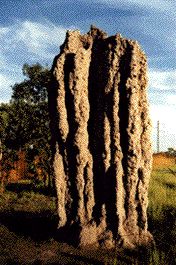The units of selection - Can natural selection favor altruistic actions?

When does it make sense to be an altruist?
Imagine that someone is drowning. An altruist would jump in and try and save him or her; the selfish individual would not. The altruistic act decreases the altruistís chance of survival by some amount which we call c (for cost) - the altruists run some risk of drowning themselves. It increases the chance of survival of the recipient by an amount b (for benefit). Does it make sense to be an altruist in this case?
Only if the benefit to the recipient exceeds the cost to the altruist. This will be true of the altruist is a better swimmer than the recipient, but it does not logically have to be true. It might be that the 'altruist' is a poor swimmer and the 'recipient' is capable of looking after him or herself. In this case, the net result of the altruistís heroic plunge into the water might merely be that the altruist would drown. Thus altrusim only makes sense in certain conditions. Now what is the condition for natural selection to favor altruism?
The image opposite is of a termite hill in Australia: a spectacular monument to altruistic behavior by sterile termite workers.
| Next |



